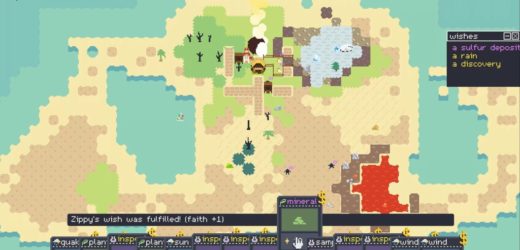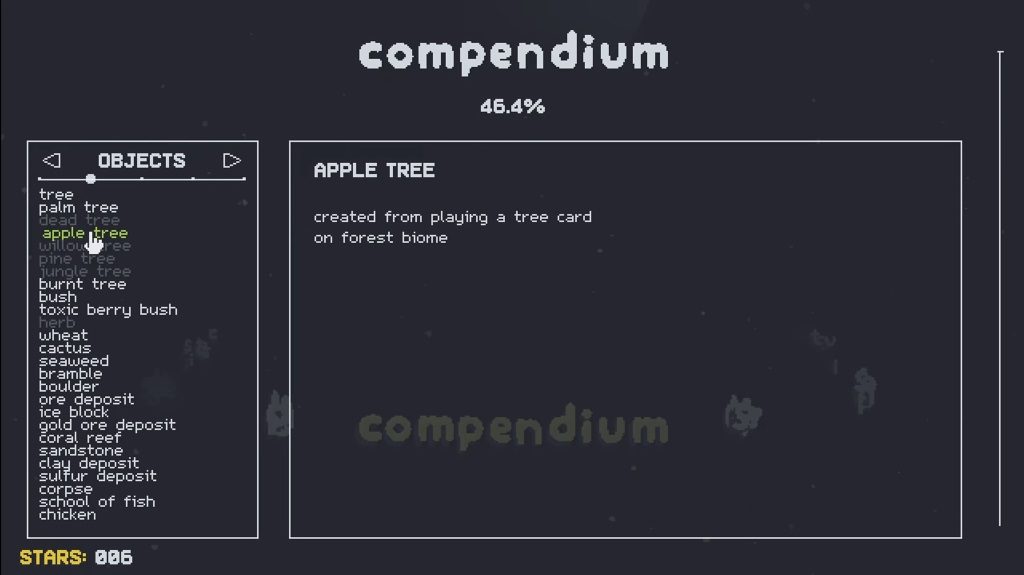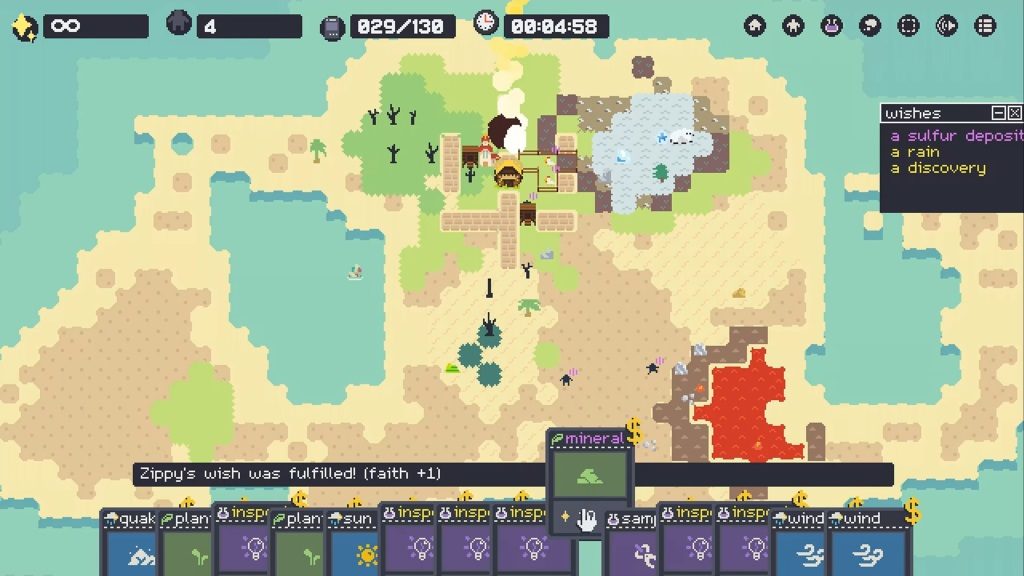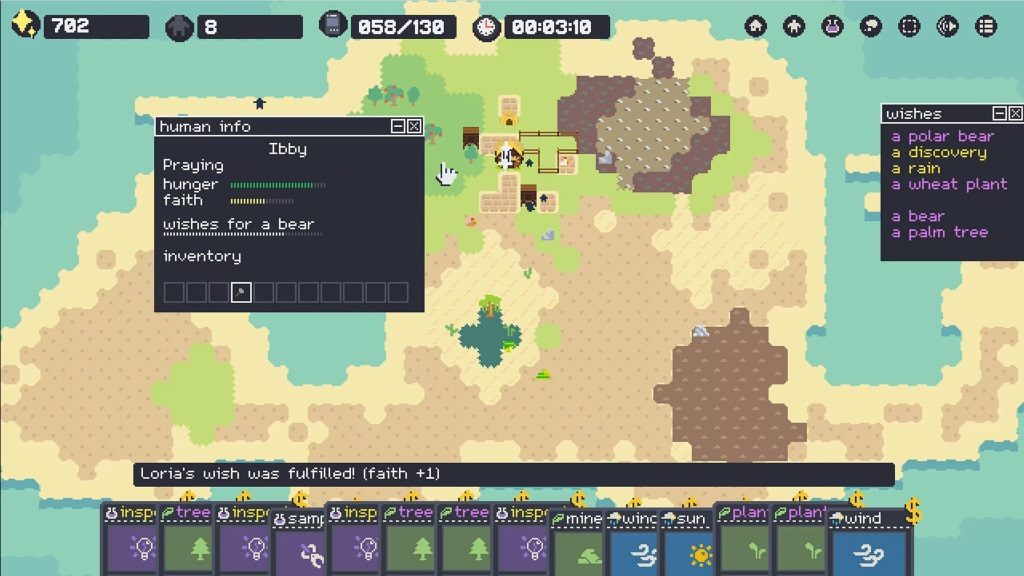Simmiland (Review)

Source: Cashmoneys
Price: £3.99
Where To Get It: Steam
If there’s one thing that God games have taught me, it’s that being a God is hard. So much to manage, so little time, so many plates, just spinning in line… But, more recently, God games like Crest, Reus,and now Simmiland, have brought me to the conclusion that while being a God is hard, it’s not helped by humans. Demanding, contrarian, and often hard to teach humans.

It also doesn’t help when the Manual for Good Godding gets mislaid.
Simmiland is, in essence, a real-time, puzzle God-game. You have cards, most of which have different effects on different biomes of the randomly generated world, and placing cards (Starting with your humans) takes Belief. From there, it’s working out what, placed where, gets the results you want. For example, minerals on grass gives you bog standard rock, useful for setting up. But placing rock in the ocean gets you coral, which, after you’ve researched medicine, needs to be Inspected for better medicine.
I’m not quite sure yet what Plague teaches my little Simmians, but it sure is cathartic when I get frustrated.

Nonetheless, the clock is ticking, and the clock is the size of your deck. So, at first, The End is guaranteed, you harvest belief based on what you managed to achieve, buy more God Cards at the God Shop, look at your compendium…
…And start all over. Aesthetically, the game is simple, but this doesn’t necessarily translate into being accessible. Cards in certain spots in your hand, for example, become a little difficult to select, be that for playing them, or selling them for belief in the tighter moments. The Compendium is the main source of remembering what a card does, and… You can’t see that from in-game. Two windows (Camp, and Wishes) are recommended to be open a fair bit of the time (Wishes all of the time, in fact, as they give you belief), but they clutter up the view. So part of the difficulty comes from struggling to remember what does what on your eventual, ideal path. Achievements at the end do help somewhat with this, giving you goals to shoot towards, but part of the “fun” is in finding out how the heck to get to these rewards.
Thing is, I can’t deny it isn’t interesting, for the same reason I found Reus interesting. Bashing things together to see what does what, building up a picture of the path I want, then aiming for it. But I also can’t deny it can’t be a frustrating experience. Human demands are sometimes very specific, and sometimes include things you just don’t know how to do yet. Heck, sometimes, it includes things that are a little irritating to do, like tropical biomes (Three suns, followed by a rain, presumably in a grass biome),or avoiding locking yourself into some dead ends. Individual games are short (Around 10 to fifteen minutes at most), but getting those achievements, those endings, that progress… That takes time.

A cool experiment in doing God Games a little differently, with elements that frustrate, and others that somewhat confuse (Why, precisely, does having a church limit your Simmians IQ to 120?)…Worth checking out, considering its price, but some unintuitive elements do bring it down somewhat.
The Mad Welshman reminds all those who haven’t discovered the secret of fire to Bang The Rocks Together, Folks!
